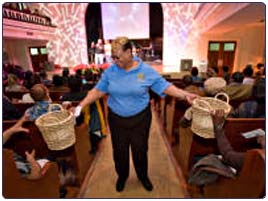P
Pheonix
Guest
Hello everyone. I’m new to apologetics, and I’m in a debate with a Calvinist on the role of Tradition. Now, while some denominations such as Lutherans do not reject Tradition altogether, this person does, claiming that the Bible does not advocate traditions, and that unbiblical traditions always lead to trouble.
I know such a claim is false, and that the Catholic Church does not teach “unbiblical traditions.” However, as I said, I’m new to apologetics. I want to learn how to give good, solid, logical arguments concerning our theology. Apologetics is a learning experience, after all.
Here’s what he wrote, along with my replies to his objections:
According to this verse, we are to accept both written traditions (such as the Bible), and oral traditions (such as the things that were taught that Scripture is silent on).
~ But you, remain faithful to what you have learned and believed, because you know from whom you learned it, and that from infancy you have known [the] sacred scriptures, which are capable of giving you wisdom for salvation through faith in Christ Jesus. (2 Timothy 3:14-15) [emphasis mine]
Timothy learned the Scriptures through someone else, namely the Apostles, and this was done through Oral Tradition (which is synonymous with the Tradition Catholics advocate).
But I’ll bite: where in Scripture are ALL traditions vehemently condemned?
I know such a claim is false, and that the Catholic Church does not teach “unbiblical traditions.” However, as I said, I’m new to apologetics. I want to learn how to give good, solid, logical arguments concerning our theology. Apologetics is a learning experience, after all.
Here’s what he wrote, along with my replies to his objections:
The bold portions are what I will focus on here:For me as someone who is reformed (Calvinistic) and evangelical, I affirm that, as far as traditions (and here I mean baptism and communion, not Catholic tradition) are concerned, it’s useful as a means of declaring my own faith to the world. But that is the limit of my view on the subject. By no means do I believe that tradition is essential- in fact it almost always becomes a stumbling block- certainly it was to the Jews of Christ’s day. Catholics tend to treat their tradition as an end in itself, but I as a Reformed person affirm that any tradition, as long as it is Biblical, at best is a means to an end; the end of course being the glorification of God, but in itself tradition is unnecessary. Some treat tradition as being on par with the Bible, but in reality scripture says nowhere that tradition saved anyone. I hold to the view which I believe is supported by scripture, “sola fide,” that faith alone saves. Catholics might support both scripture and tradition strongly, but scripture does not support tradition at all. In fact I believe that in many aspects Catholic tradition is flat-out unbiblical. So then, a house divided against itself cannot stand; how can Catholics support a scripture that does not even support their own institutions?
- The reason the Jews had “stumbling traditions” was because they were clearly against what God was saying. The Scriptures do not, however, advocate that all traditions are inherently bad; in fact, the Scriptures tell us to follow traditions. It’s just as you said: if the tradition has foundation in the Bible, then it’s fine. I advocate that the Catholic Church’s traditions are supported by Scripture.
- Catholics treat Tradition as an end? Where is your evidence for this? Tradition, the Holy Scriptures, and the Magisterium are all on the same level. Neither is above the other, and none of them contradict each other.
- You say that the Bible doesn’t say anything about traditions saving anyone. [paraphrase] However, the Bible doesn’t say anything about the Scriptures saving anyone either.
- You believe your view is based on Scripture? Well, Catholics believe our views are based on Scripture. It’s our word against yours; who’s right and who’s wrong?
- Nowhere do the Scriptures advocate that one is saved merely by “faith alone.” In fact, the Scriptures tell us about the importance of good works as much as faith, but having the former alone or the latter alone will not merit salvation. The only time “faith alone” is mentioned in the Bible is in the book of James, where the concept is vehemently refuted.
- Scripture does not support Tradition at all? Are you sure about that? Then what do you have to say about the following verses:
According to this verse, we are to accept both written traditions (such as the Bible), and oral traditions (such as the things that were taught that Scripture is silent on).
~ But you, remain faithful to what you have learned and believed, because you know from whom you learned it, and that from infancy you have known [the] sacred scriptures, which are capable of giving you wisdom for salvation through faith in Christ Jesus. (2 Timothy 3:14-15) [emphasis mine]
Timothy learned the Scriptures through someone else, namely the Apostles, and this was done through Oral Tradition (which is synonymous with the Tradition Catholics advocate).
But I’ll bite: where in Scripture are ALL traditions vehemently condemned?
- And finally, you believe Catholic traditions are unbiblical? Well, I say the same thing about Calvinist theology. Again, who’s right and who’s wrong? I can firmly say that many, if not all, Catholic beliefs and traditions come from somewhere in Scripture.

